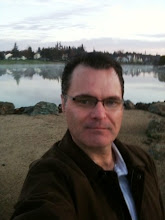Rehearsing and Giving the Speech
By ANDREW GREENE
First of all, as we prepare to conquer our oratory fear, we need to remember that the key is in the preparation. It is as coaches preach, “You play as you practice.”
Confidence in front of your audience comes from complete familiarity with your material. Tentativeness and an over-reliance on notes rob you of your confidence and therefore your credibility.
As you practice your speech, you need to remember where your signal words are. How did you organize your speech? What are the most important points? Once you understand and are fully acquainted with the skeleton of your speech you will be more capable of presenting it in a natural manner.
Mind-mapping, also called clustering, brainstorming and a whole list of other names, is one effective way of memorizing your speech’s notes due to its visual nature.
To mind map, you begin by writing your subject in the middle of a blank sheet of paper. You next circle the subject and then write your main ideas radiating out from the circled central-subject. From these main ideas you branch out your supporting details. Once you have finished, you are left with a series of webs that clearly delineate the relationships between the subject, its main ideas and their supporting details. Some people feel that color coding the map by order of importance is of further help.
After you have memorized your speech using whichever mnemonic techniques you are comfortable with, you will need to rehearse it. At first it is fine for you to practice with your note-cards, but eventually you want to be able to deliver your speech without them, only having them on hand in case of emergency.
When you begin to practice aloud you may initially feel awkward. After all, for most of us, it is not natural to speak all alone. What you should aim for is the ability to give your presentation in a conversational, normal manner. As you give yourself feedback on your rehearsals, ask yourself if you appear natural. Drill and drill until the speech becomes second nature.
Where are you going to give your speech? Are you going to use any sound or lighting equipment? If so, try to get practice time in the actual venue and with the equipment that you will be using. The time to first hear your own amplified voice is not when you are parting your lips in front of the audience.
When the occasion to give your speech arrives, there are a number of tips for you to keep in mind.
Most importantly, you need to remember that you are ready. You are completely prepared and it is you who knows your material the best. Next, you need to always bear in mind that the audience is there for you. They want to go on your journey with you. They are not looking for faults; they want you to succeed.
You want to speak to friends, not strangers. The international nonprofit organization Toastmasters suggests you greet members of the audience as they arrive. This gives you the chance to “Know your audience” and in turn boosts your credibility.
During your speech it is helpful for you to look out over the audience and make eye contact with individuals. This calms your nerves and in turn puts your listeners at ease.
As OnWords’ final public speaking column comes to a close, I would like to ask you a few questions. What public speakers do you admire? Why do they appeal to you? Is one of their main strengths that they seem to belong on stage? That they are natural speakers? I am guessing your answer to these last two queries is, yes.
What we all need to keep in mind is that when we are observing those gifted speakers, we are witnessing just the tip of a long process that involves writing, editing, and a whole lot of practicing. They have put in the time perfecting this skill so that it does in fact become natural. The good news for all of us is that we too can work at public speaking. We too can transform it into an activity we come to enjoy.
For information on how to join Toastmasters or on how to even start a chapter within your company or group please contact Kebayoran Toastmasters’ Vice President (membership), Monica Sugiarto, at 062818155119 or queen@sugiarto.famili.com. Toastmasters also has a website, www.toastmasters.org, loaded with public speaking tips and membership information.
Until next column,
Happy Speaking,
AG
This article was originally published in The


